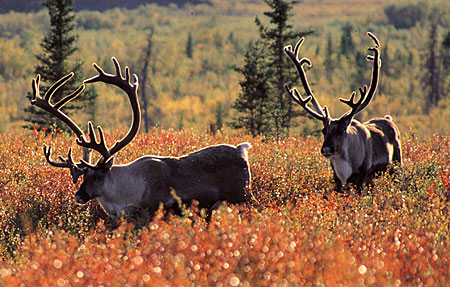The Alaska Department of Law filed more legal briefs in the ongoing court proceedings surrounding the intensive management of the Mulchatna caribou herd.
The filings come in response to a May 7 Superior Court order that addressed, but did not overturn, the state’s emergency bear removal regulation. The matter stems from a lawsuit by the Alaska Wildlife Alliance.
The emergency regulation, adopted by the Board of Game on March 27, was put in place to help reverse the decline of the Mulchatna caribou population. State biologists have identified high bear predation as a critical factor contributing to the herd’s continued low numbers, prompting the state to authorize targeted bear removal efforts in key areas.
The Mulchatna caribou herd is located in southwestern Alaska, encompassing parts of the Bristol Bay, Kuskokwim River, and Lake Clark regions. Historically, the herd’s range extended from Dillingham to Bethel and as far as Lake Iliamna.
In its ruling, the Superior Court clarified that does not have the jurisdiction to issue a temporary restraining order against the March 27 regulation. Because the emergency action was not part of the original case, the court determined it could not block its implementation. As a result, the State of Alaska is moving forward with the bear removal program.
The Board of Game has emphasized the importance of the Mulchatna caribou as a subsistence resource for many Alaskans. In adopting the emergency regulation, the Board was relying on the authority of Article VIII of the Alaska Constitution and the Intensive Management Act, which mandate the prioritization of wild game populations for human consumption when numbers are insufficient to meet demands.
The Alaska Department of Fish and Game, in coordination with the Board of Game, also has a statutory responsibility to manage wildlife populations sustainably and in accordance with state law. The agencies maintain that the emergency measures are necessary to support the recovery of the caribou herd and to safeguard a critical food source for rural communities.
While the state plans to seek clarification on certain elements of the court’s order, officials have confirmed that the ruling does not prohibit bear-culling activities permitted under the emergency regulation. The Department of Law has reiterated the state’s intent to remain in full compliance with the decision while continuing essential wildlife management efforts.
